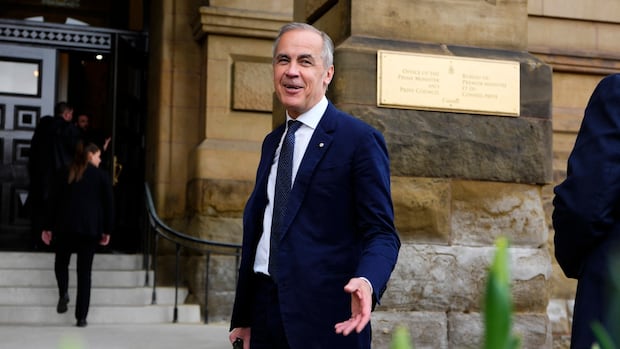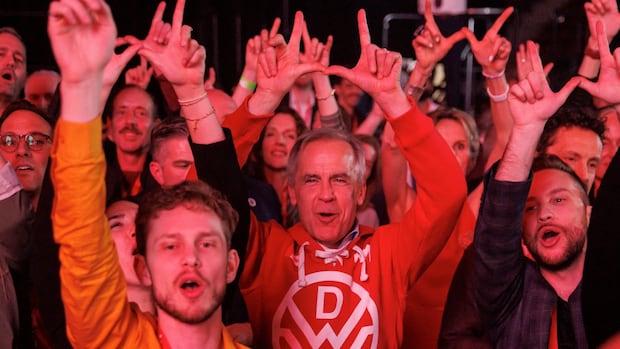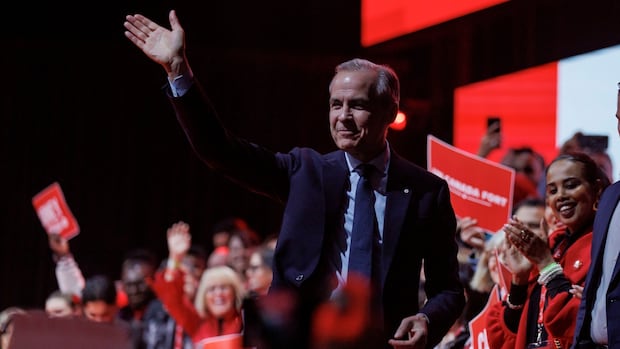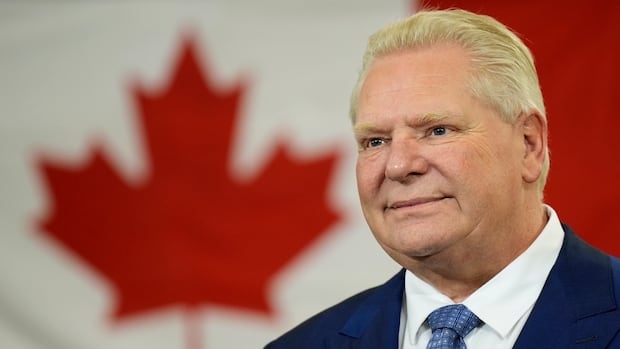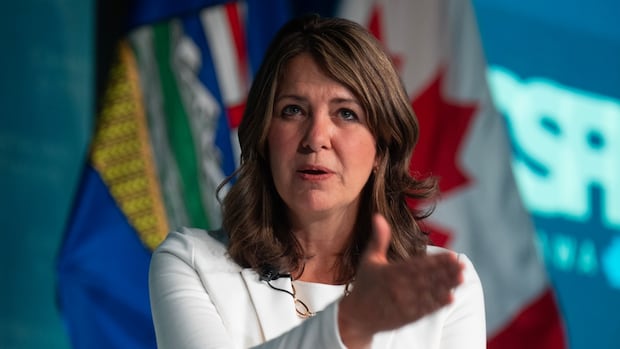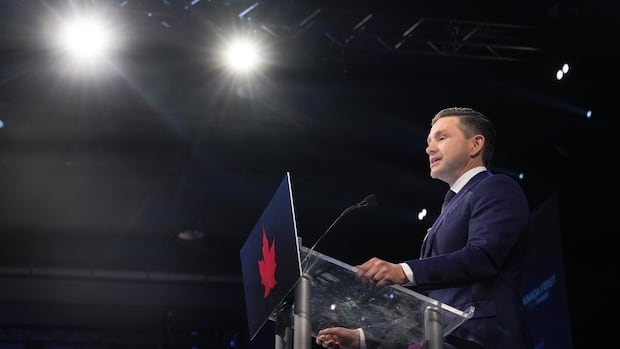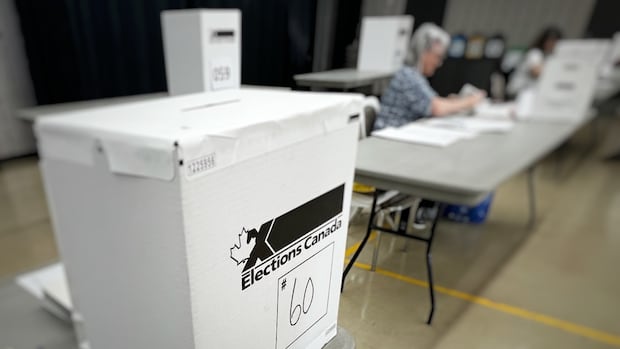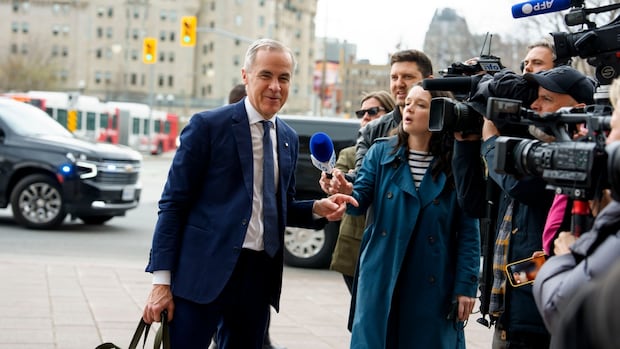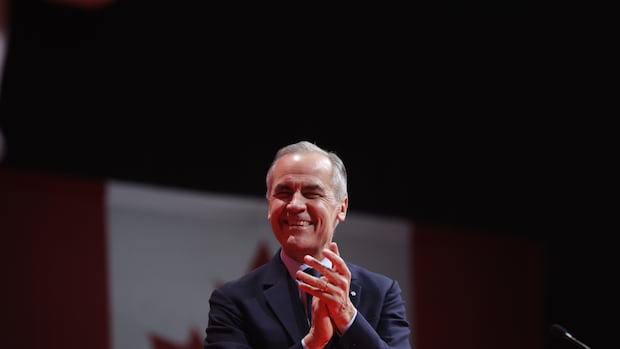Prime Minister Mark Carney spoke to U.S. President Donald Trump a day after securing the Liberals a return to power and following a campaign very much based on reproaching the president's trade war and his 51s state ambitions.
According to a readout of the call from the Prime Minister's Office, Trump congratulated Carney.
"The leaders agreed on the importance of Canada and the United States working together — as independent, sovereign nations — for their mutual betterment," the readout said.
"To that end, the leaders agreed to meet in person in the near future."
A statement from the U.S. State Department sent to CBC News on Tuesday afternoon also extended congratulations to Carney.
"We look forward to working with Prime Minister Carney's government, particularly on key issues such as trade fairness, combating illegal immigration, halting the flow of fentanyl and other dangerous drugs and countering the Chinese Communist Party influence in our hemisphere," read the statement from spokeswoman Tammy Bruce.
However, in a statement to The Canadian Press earlier in the day, White House spokesperson Anna Kelly said the election "does not affect President Trump's plan to make Canada America's cherished 51st state."
Trump's return to the White House and former prime minister Justin Trudeau's exit from Canadian politics played a role in delivering Carney a minority win.
WATCH | Why no model could predict this election: Canadians elected a Liberal government, with Mark Carney as prime minister, in a major reversal of fortune for the party. Andrew Chang breaks down why predicting the outcome of this dramatic night was so challenging, and where the parties stand following some significant losses across the board.After winning re-election south of the border, Trump threatened to impose massive tariffs on all Canadian goods, claiming he needed to take action because of fentanyl spilling across the border. U.S. figures show the percentage of fentanyl seized at the northern border is fraction of the deadly opioid seized at the U.S. southern border.
Trump coupled his tariff threats with repeated calls for Canada to become a U.S. state, and referred to Trudeau as "governor."
So far this year, Trump has triggered chaos in the markets, bringing in steep duties on goods from Canada and around the world, then walking them at least partially back.
He has since moved ahead with tariffs against Canada's auto sector, steel and aluminum — but some of those are also in flux.
All of that reshaped the ballot box question leading into Canada's 45th election. The Liberals are projected to take 169 seats, shy of the 172 needed for a majority.
While a Liberal win was clear on election night, it took until Tuesday to be certain what kind of government Carney would lead.
Recounts in tight racesCarney, a central banker who ascended to the office of prime minister after an incredible sequence of events, will need to collaborate with opposition members, most likely the Bloc Québécois or NDP, to pass legislation and stave off another election in the near future.
While there will be at least two automatic recounts, results suggest for now the Conservatives secured 144 seats, the Bloc were reduced to 22 and the NDP collapsed to just seven. Elizabeth May is back to being the sole Green Party MP.
The results are likely not as strong as Carney, who had been asking Canadians for a "strong mandate," wanted.
Still, a minority government would have felt miraculous a few months ago when the Liberals under Trudeau faced annihilation.
When Canadians gathered over the December holidays, Pierre Poilievre's Conservatives had a 21-point lead over the Liberals in opinion polls as Canadians became increasingly concerned about affordability and frustrated with the Liberals.
WATCH | Poilievre projected to lose his longtime Ottawa-area seat Conservative Leader Pierre Poilievre has been projected to lose his seat in the Ottawa-area riding of Carleton to Liberal Bruce Fanjoy.Then came Trudeau's resignation and Trump's annexation taunts.
By Easter and Passover, Carney's Liberals held a small lead in the polls, which he was able to translate into the most seats.
While the race against the Conservatives shaped up to be closer than many polls predicted, Carney pulled off one of the most stunning reversals of political fortunes in Canadian history.
"Not a lot of sleep," said Carney as he headed into his office Tuesday morning. He remains prime minister but now gets to call himself an elected leader, after securing a seat in the House of Commons and winning the most seats.
Poilievre, Singh both lose seatsThis projection means Carney will not only need to figure how to lead his party in the House of Commons, something he's never done before, but also how to manage a minority situation.
That's on top of an already ambitious agenda he laid out to voters, including what could be unpleasant negotiations with the president around a new economic and security deal.
And he's promised to reduce interprovincial trade barriers by Canada Day as part of his plan to lessen the country's dependence on the U.S.
Carney also spoke to French President Emmanuel Macron on Tuesday. According to the readout of that conversation, the two men discussed their "ongoing work to deepen defence and commercial ties between their nations" and agreed to remain in close contact.
When the House of Commons is recalled, there will be two prominent faces missing. Poilievre failed to win his Ottawa-area riding and NDP Leader Jagmeet Singh also lost his seat.
Singh announced last night he will step down, but Poilievre indicated he wants to stay on.


